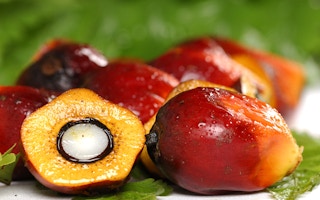Local stakeholders, including the business community, have voiced support for the government’s efforts to have agriculture-based products, such as palm oil and rubber, included on Asia-Pacific Economic Cooperation’s (APEC) list of environmentally friendly goods despite a lack of support from the majority of members.
Amin Subekti, an executive of Indonesia’s APEC Business Advisory Council (ABAC), said on Thursday in Medan that local business representatives would encourage their members to approve the inclusion of local agro-based products as one of the key recommendations to APEC leaders.
“There is still a long way to go to expand the environmental goods list to include our agriculture products. But we have to do this now,” Amin, who is also ABAC executive director for 2013, said in a press briefing ahead of the third APEC senior officials meeting (SOM) on Friday and Saturday in the North Sumatra capital.
Promoting agriculture products would pave the way for Indonesia to lead by example on generating sustainable and green economic growth due to their huge impact on the overall economy, he further said.
With a share of around 20 percent of gross domestic product (GDP), the agriculture sector has traditionally been a key contributor to growth in the country.
It also helps create jobs, absorbing around 40 percent of the workforce in the country.
As the chair of APEC this year, Indonesia, the world’s largest palm oil producer and second biggest supplier, has pushed its agenda of including the two commodities on the environmental goods list that was earlier agreed upon during a summit in Russia last year.
It argues, among other things, that the 54 items, considered “eco-friendly” on the list and subject to tariff reduction of up to 15 percent by 2015, are mostly manufactured goods, highly reflecting the interests of developed countries rather than developing and least-developed economies, which mostly still depend heavily on agriculture.
By the second SOM, the idea had gained little backing from other economies, with only Chile, Peru and Papua New Guinea supporting it.
Liana Bratasida, the executive director of Indonesian Pulp and Paper (APKI), said the struggle to include local agro-based products on the list, which might also include pulp and paper, would be a way to gain international recognition of Indonesia’s efforts to address environmental concerns in the last decade.
“We will keep fighting to add our commodities to the environment goods list even though other countries reject the idea,” she said.
Palm oil, which Indonesia claims is “eco-friendly” due to its high yield and feasibility for conversion into biofuel, has long been controversial at home as it is believed to cause massive deforestation and social conflicts.
In past years, the government has addressed this concern by introducing mandatory sustainability certification under the Indonesian Sustainable Palm Oil (ISPO) scheme, while palm oil producers have joined another voluntary scheme, the Roundtable on Sustainable Palm Oil (RSPO), to meet consumers’ demand for an eco-friendly supply chain.
The Trade Ministry’s director general for international trade cooperation said that the Indonesian delegation would again call on fellow APEC members to consider Indonesia’s proposal to extend the list at the SOM meeting on Friday.
“But in the end, the most important thing will be to develop understanding that agro-based products contribute to sustainability. These also cover products other than palm oil, rubber, pulp and paper,” he said in a press briefing.

















